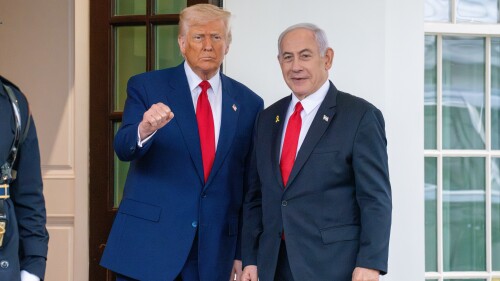After the Hezbollah rocket attack in Majdal Shams on Saturday that left 12 children dead and dozens more injured, Israel found itself forced to carry out a muscular response.
The question was how.
Several options were on the table, some of them pushed loudly by prominent officials. Israel could have opted to finally embark on the long-anticipated war on Hezbollah, seeking to drive the Shiite terror army from southern Lebanon and degrade its military capabilities.
Alternatively, Prime Minister Benjamin Netanyahu could have opted for a limited air campaign across Lebanon, focusing on taking out key Hezbollah targets, both as punishment for the Golan Heights strike and to put Israel in a better position if and when war breaks out.
Or Israel could also have struck the Lebanese state itself, trying to compel it to rein Hezbollah in.
Read the full article at the Times of Israel.








